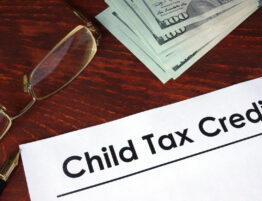You’re getting
divorced. You suspect that your spouse committed
tax fraud. Maybe you know – – or think
you know – that:
- Cash
payments to a small business didn’t get counted. - Personal
living expenditures were deducted as business expenses. - Income
from side work that didn’t make it to the tax return. - Foreign
bank accounts that didn’t get reported.
What do you do?
Consult
with an experienced divorce lawyer. Do
not – we repeat – DO NOT call the
IRS tip line until your attorney has heard all of the facts and evaluated all
of the risks that such a call can create for you, as well as your spouse.
The first question we ask when this comes up: How do you know? Is this merely suspicion? Did somebody tell you? Or do you have personal knowledge of the facts? There’s a big difference between thinking that the cash s/he is always waiving around wasn’t reported and knowing that your plastic surgery was deducted as an employee health benefit because you signed the partnership return.
Which leads to Question No. 2: Did you file a joint return?
If you
signed off on a joint return and knew of the deception, you could be charged
with conspiracy to commit tax fraud. That
is a serious crime.
Even if
you’re not on the hook, it takes careful analysis to determine whether it’s in
your financial best interests to air this issue.
You may be
tempted to make a report so you can get an IRS whistleblower award. But understand:
- There’s
no award unless the IRS actually collects additional tax, based on your tip. - You
may have heard that you can get at 30% of the tax at issue. That’s the max; it can also be 15%. And that’s 30% of the money that’s actually
collected (paid). - It
usually takes about 6 years to get any payment for a whistleblower award.
And if
your ex is caught and convicted of tax fraud, that usually means:
- There’s a lot less income for child support.
- There may be less money to divide in the marital estate because all those taxes and penalties have to be paid.
- Your children will have to live with the knowledge that their parent is a criminal.
- Your children may be teased or bullied at school because their parent is a in prison.
Even if
you don’t tell the IRS, think hard before putting proof of tax fraud in
evidence. There are reported cases where
tax evasion came out in a divorce trial, and the judge reported it to the IRS.
With complex issues like tax fraud, your best bet is to seek the advice and counsel of an experienced professional. The pre-eminent attorneys at Bays Family Law have successfully handled these issues many times and are here to help you make the right decision.






